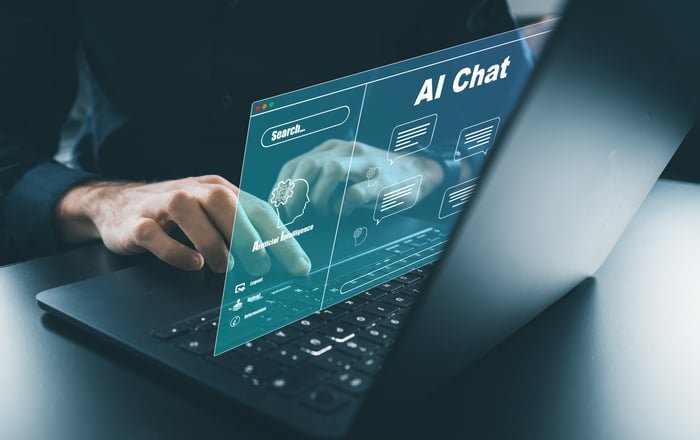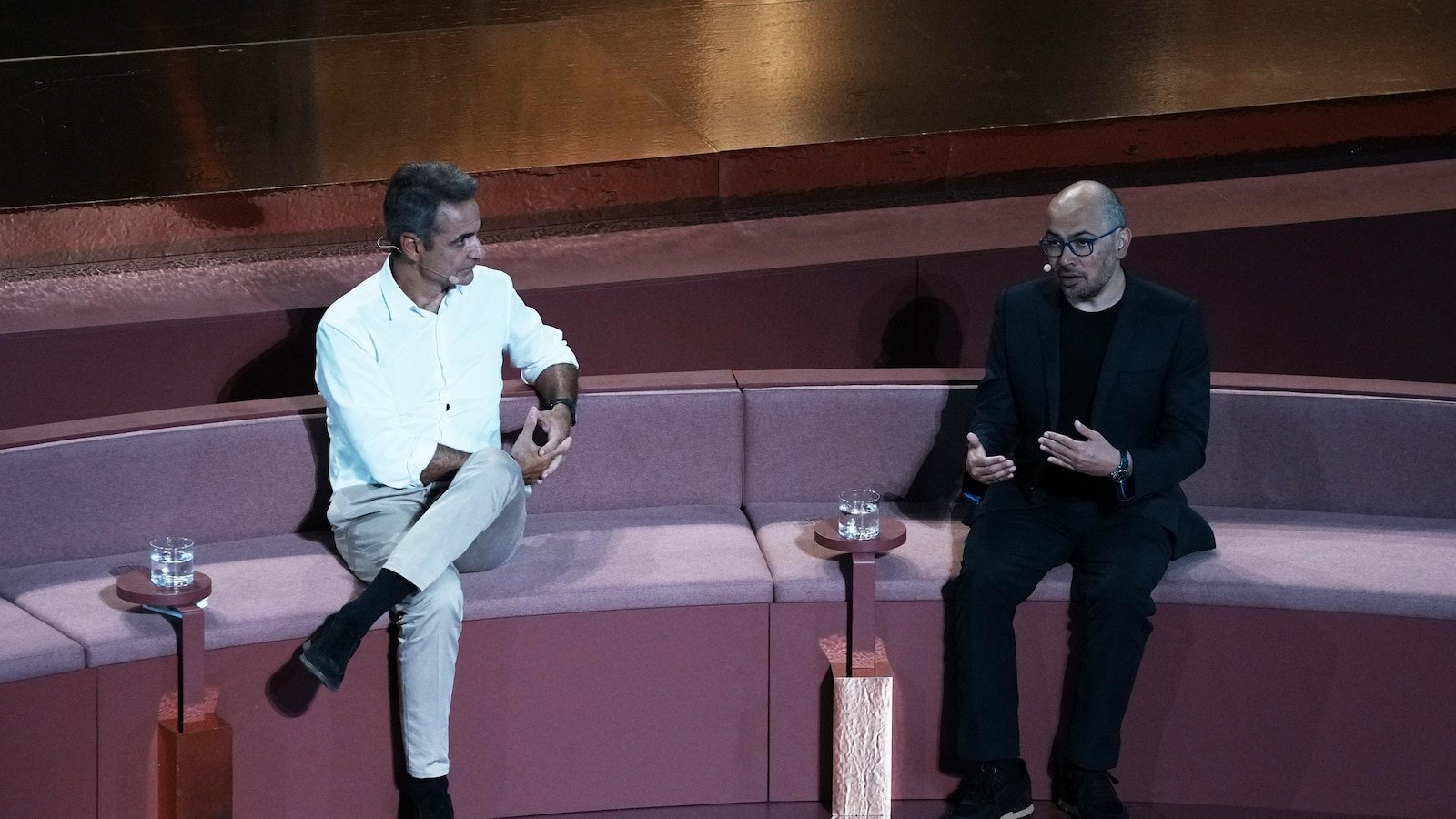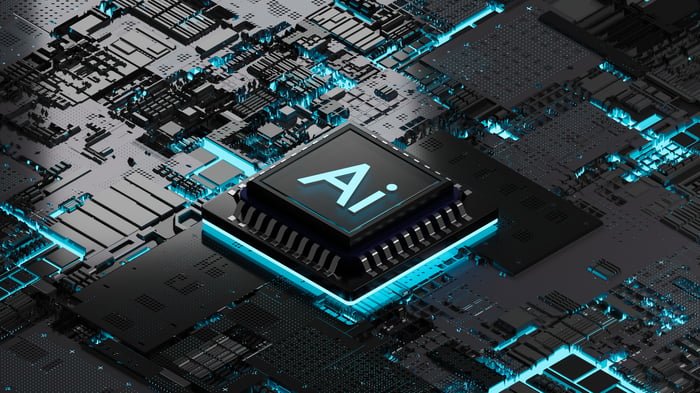AI Research
Why Ibex Stock Surged 41% to All-Time Highs Today (Hint: It’s Artificial Intelligence)

Key Points
-
Ibex reported record revenue for its fourth quarter and full year of 2025.
-
Ibex is expanding its AI tools and targeting new verticals.
-
The stock hit an all-time high on Sept. 12.
- 10 stocks we like better than Ibex ›
Ibex reported record revenue for its fourth quarter and full year of 2025.
Ibex is expanding its AI tools and targeting new verticals.
The stock hit an all-time high on Sept. 12.
Shares of little-known company Ibex (NASDAQ: IBEX) went parabolic today, shooting 41.1% higher in early-morning trading. The stock was still trading around 33% up at 1:15 p.m. ET Friday.
Ibex is a business process outsourcing company, providing a wide array of services such as customer and technical support, lead generation, surveys, and business intelligence and analytics.
Where to invest $1,000 right now? Our analyst team just revealed what they believe are the 10 best stocks to buy right now. Continue »
Turns out, Ibex’s efforts to build a digital business have already started to pay off, and that is drawing attention to the stock today. The keyword here is artificial intelligence (AI).
Image source: Getty Images.
AI-driven growth
Ibex reported numbers for its 2025 fourth quarter and fiscal year (ended June 30) after the Sept. 11 market close. Ibex’s Q4 revenue jumped 18% year over year to $147 million, driven by strong growth in its top three markets: retail and e-commerce; healthcare; and travel, transportation, and logistics.
The real deal, however, is what Ibex’s full earnings report looked like:
- Record fourth-quarter and full-year revenue
- Highest revenue growth in 11 quarters
- Fastest revenue growth in three years for the full year
- Record free cash flow
These are big milestones, but they’re not really why Ibex stock is going to the moon. It’s these words from CEO Bob Dechant: “Importantly, this quarter marked the shift from proof of concept for our AI solutions to full-scale deployments, setting the table for future growth.”
Ibex is “transforming into a digital-first business” by leveraging AI through its Wave iX platform, which uses generative AI to improve customer experiences. Earlier this month, Ibex said it is targeting the government sector now.
What’s next for Ibex stock?
The company’s capital expenditures more than doubled to $18.4 million in 2025, driven by capacity expansion. Ibex generated record free cash flow of $27.3 million in the year and repurchased nearly 3.9 million shares, almost 23% of its outstanding shares.
Following Ibex’s strong earnings report, analysts at RBC Capital were quick to raise their price target on the stock to $39 per share from $31 a share. Ibex stock already hit an all-time high of $42.99 per share today.
With Ibex projecting 7.5% revenue growth at the midpoint for FY 2026 and capital expenditure of $20 million to $25 million on further expansions, this is one stock you should have on your radar.
Should you invest $1,000 in Ibex right now?
Before you buy stock in Ibex, consider this:
The Motley Fool Stock Advisor analyst team just identified what they believe are the 10 best stocks for investors to buy now… and Ibex wasn’t one of them. The 10 stocks that made the cut could produce monster returns in the coming years.
Consider when Netflix made this list on December 17, 2004… if you invested $1,000 at the time of our recommendation, you’d have $649,037!* Or when Nvidia made this list on April 15, 2005… if you invested $1,000 at the time of our recommendation, you’d have $1,086,028!*
Now, it’s worth noting Stock Advisor’s total average return is 1,056% — a market-crushing outperformance compared to 188% for the S&P 500. Don’t miss out on the latest top 10 list, available when you join Stock Advisor.
*Stock Advisor returns as of September 8, 2025
Neha Chamaria has no position in any of the stocks mentioned. The Motley Fool has no position in any of the stocks mentioned. The Motley Fool has a disclosure policy.
The views and opinions expressed herein are the views and opinions of the author and do not necessarily reflect those of Nasdaq, Inc.
AI Research
AI scientist says ‘learning how to learn’ will be next generation’s most needed skill

ATHENS, Greece — A top Google scientist and 2024 Nobel laureate said Friday that the most important skill for the next generation will be “learning how to learn” to keep pace with change as Artificial Intelligence transforms education and the workplace.
Speaking at an ancient Roman theater at the foot of the Acropolis in Athens, Demis Hassabis, CEO of Google’s DeepMind, said rapid technological change demands a new approach to learning and skill development.
“It’s very hard to predict the future, like 10 years from now, in normal cases. It’s even harder today, given how fast AI is changing, even week by week,” Hassabis told the audience. “The only thing you can say for certain is that huge change is coming.”
The neuroscientist and former chess prodigy said artificial general intelligence — a futuristic vision of machines that are as broadly smart as humans or at least can do many things as well as people can — could arrive within a decade. This, he said, will bring dramatic advances and a possible future of “radical abundance” despite acknowledged risks.
Hassabis emphasized the need for “meta-skills,” such as understanding how to learn and optimizing one’s approach to new subjects, alongside traditional disciplines like math, science and humanities.
“One thing we’ll know for sure is you’re going to have to continually learn … throughout your career,” he said.
The DeepMind co-founder, who established the London-based research lab in 2010 before Google acquired it four years later, shared the 2024 Nobel Prize in chemistry for developing AI systems that accurately predict protein folding — a breakthrough for medicine and drug discovery.
Greek Prime Minister Kyriakos Mitsotakis joined Hassabis at the Athens event after discussing ways to expand AI use in government services. Mitsotakis warned that the continued growth of huge tech companies could create great global financial inequality.
“Unless people actually see benefits, personal benefits, to this (AI) revolution, they will tend to become very skeptical,” he said. “And if they see … obscene wealth being created within very few companies, this is a recipe for significant social unrest.”
Mitsotakis thanked Hassabis, whose father is Greek Cypriot, for rescheduling the presentation to avoid conflicting with the European basketball championship semifinal between Greece and Turkey. Greece later lost the game 94-68.
____
Kelvin Chan in London contributed to this story.
AI Research
Should You Forget Nvidia and Buy These 2 Artificial Intelligence (AI) Stocks Instead?

Both AMD and Broadcom have an opportunity to outperform in the coming years.
Nvidia is the king of artificial intelligence (AI) infrastructure, and for good reason. Its graphics processing units (GPUs) have become the main chips for training large language models (LLMs), and its CUDA software platform and NVLink interconnect system, which helps its GPUs act like a single chip, have helped create a wide moat.
Nvidia has grown to become the largest company in the world, with a market cap of over $4 trillion. In Q2, it held a whopping 94% market share for GPUs and saw its data center revenue soar 56% to $41.1 billion. That’s impressive, but those large numbers may be why there could be some better opportunities in the space.
Two stocks to take a closer look at are Advanced Micro Devices (AMD 1.91%) and Broadcom (AVGO 0.19%). Both are smaller players in AI chips, and as the market shifts from training toward inference, they’re both well positioned. The reality is that while large cloud computing and other hyperscalers (companies with large data centers) love Nvidia’s GPUs they would prefer more alternatives to help reduce costs and diversify their supply chains.
1. AMD
AMD is a distant second to Nvidia in the GPU market, but the shift to inference should help it. Training is Nvidia’s stronghold, and where its CUDA moat is strongest. However, inference is where demand is accelerating, and AMD has already started to win customers.
AMD management has said one of the largest AI model operators in the world is using its GPUs for a sizable portion of daily inference workloads and that seven of the 10 largest AI model companies use its GPUs. That’s important because inference isn’t a one-time event like training. Every time someone asks a model a question or gets a recommendation, GPUs are providing the power for these models to get the answer. That’s why cost efficiency matters more than raw peak performance.
That’s exactly where AMD has a shot to take some market share. Inference doesn’t need the same libraries and tools as training, and AMD’s ROCm software platform is more than capable of handling inference workloads. And once performance is comparable, price becomes more of a deciding factor.
AMD doesn’t need to take a big bite out of Nvidia’s share to move the needle. Nvidia just posted $41.1 billion in data center revenue last quarter, while AMD came in at $3.2 billion. Even small wins can have an outsize impact when you start from a base that is a fraction of the size of the market leader.
On top of that, AMD helped launch the UALink Consortium, which includes Broadcom and Intel, to create an open interconnect standard that competes with Nvidia’s proprietary NVLink. If successful, that would break down one of Nvidia’s big advantages and allow customers to build data center clusters with chips from multiple vendors. That’s a long-term effort, but it could help improve the playing field.
With inference expected to become larger than training over time, AMD doesn’t need to beat Nvidia to deliver strong returns; it just needs a little bigger share.
Image source: Getty Images.
2. Broadcom
Broadcom is attacking the AI opportunity from another angle, but the upside may be even more compelling. Instead of designing off-the-shelf GPUs, Broadcom is helping customers make their own customer AI chips.
Broadcom is a leader in helping design application-specific integrated circuits, or ASICs, and it has taken that expertise and applied it to making custom AI chips. Its first customer was Alphabet, which it helped design its highly successful Tensor Processing Units (TPUs) that now help power Google Cloud. This success led to other design wins, including with Meta Platforms and TikTok owner ByteDance. Combined, Broadcom has said these three customers represent a $60 billion to $90 billion serviceable addressable market by its fiscal 2027 (ending October 2027).
However, the news got even better when the company revealed that a fourth customer, widely believed to be OpenAI, placed a $10 billion order for next year. Designing ASICs is typically not a quick process. Alphabet’s TPUs took about 18 months from start to finish, which at the time was considered quick. But this newest deal shows it can keep this fast pace. This also bodes well with future deals, as late last year it was revealed that Apple will be a fifth customer.
Custom chips have clear advantages for inference. They’re designed for specific workloads, so they deliver better power efficiency and lower costs than off-the-shelf GPUs. As inference demand grows larger than training, Broadcom’s role as the go-to design partner becomes more valuable.
Now, custom chips have large upfront costs to design and aren’t for everyone, but this is a huge potential opportunity for Broadcom moving forward.
The bottom line
Nvidia is still the dominant player in AI infrastructure, and I don’t see that changing anytime soon. However, both AMD and Broadcom have huge opportunities in front of them and are starting at much smaller bases. That could help them outperform in the coming years.
Geoffrey Seiler has positions in Alphabet. The Motley Fool has positions in and recommends Advanced Micro Devices, Alphabet, Apple, Meta Platforms, and Nvidia. The Motley Fool recommends Broadcom. The Motley Fool has a disclosure policy.
AI Research
Google’s top AI scientist says ‘learning how to learn’ will be next generation’s most needed skill

ATHENS – A top Google scientist and 2024 Nobel laureate said Friday that the most important skill for the next generation will be “learning how to learn” to keep pace with change as Artificial Intelligence transforms education and the workplace.
Speaking at an ancient Roman theater at the foot of the Acropolis in Athens, Demis Hassabis, CEO of Google’s DeepMind, said rapid technological change demands a new approach to learning and skill development.
“It’s very hard to predict the future, like 10 years from now, in normal cases. It’s even harder today, given how fast AI is changing, even week by week,” Hassabis told the audience. “The only thing you can say for certain is that huge change is coming.”
The neuroscientist and former chess prodigy said artificial general intelligence — a futuristic vision of machines that are as broadly smart as humans or at least can do many things as well as people can — could arrive within a decade. This, he said, will bring dramatic advances and a possible future of “radical abundance” despite acknowledged risks.
Hassabis emphasized the need for “meta-skills,” such as understanding how to learn and optimizing one’s approach to new subjects, alongside traditional disciplines like math, science and humanities.
“One thing we’ll know for sure is you’re going to have to continually learn … throughout your career,” he said.
The DeepMind co-founder, who established the London-based research lab in 2010 before Google acquired it four years later, shared the 2024 Nobel Prize in chemistry for developing AI systems that accurately predict protein folding — a breakthrough for medicine and drug discovery.
Greek Prime Minister Kyriakos Mitsotakis joined Hassabis at the Athens event after discussing ways to expand AI use in government services. Mitsotakis warned that the continued growth of huge tech companies could create great global financial inequality.
“Unless people actually see benefits, personal benefits, to this (AI) revolution, they will tend to become very skeptical,” he said. “And if they see … obscene wealth being created within very few companies, this is a recipe for significant social unrest.”
Mitsotakis thanked Hassabis, whose father is Greek Cypriot, for rescheduling the presentation to avoid conflicting with the European basketball championship semifinal between Greece and Turkey. Greece later lost the game 94-68.
____
Kelvin Chan in London contributed to this story.
Copyright 2025 The Associated Press. All rights reserved. This material may not be published, broadcast, rewritten or redistributed without permission.
-

 Business2 weeks ago
Business2 weeks agoThe Guardian view on Trump and the Fed: independence is no substitute for accountability | Editorial
-
Tools & Platforms1 month ago
Building Trust in Military AI Starts with Opening the Black Box – War on the Rocks
-

 Ethics & Policy2 months ago
Ethics & Policy2 months agoSDAIA Supports Saudi Arabia’s Leadership in Shaping Global AI Ethics, Policy, and Research – وكالة الأنباء السعودية
-

 Events & Conferences4 months ago
Events & Conferences4 months agoJourney to 1000 models: Scaling Instagram’s recommendation system
-

 Jobs & Careers2 months ago
Jobs & Careers2 months agoMumbai-based Perplexity Alternative Has 60k+ Users Without Funding
-

 Podcasts & Talks2 months ago
Podcasts & Talks2 months agoHappy 4th of July! 🎆 Made with Veo 3 in Gemini
-

 Education2 months ago
Education2 months agoVEX Robotics launches AI-powered classroom robotics system
-

 Education2 months ago
Education2 months agoMacron says UK and France have duty to tackle illegal migration ‘with humanity, solidarity and firmness’ – UK politics live | Politics
-

 Funding & Business2 months ago
Funding & Business2 months agoKayak and Expedia race to build AI travel agents that turn social posts into itineraries
-

 Podcasts & Talks2 months ago
Podcasts & Talks2 months agoOpenAI 🤝 @teamganassi

